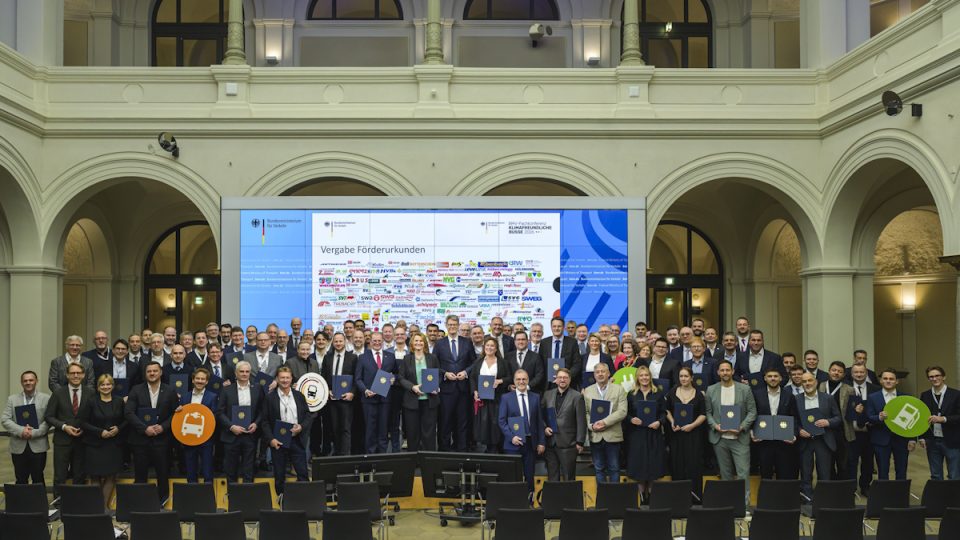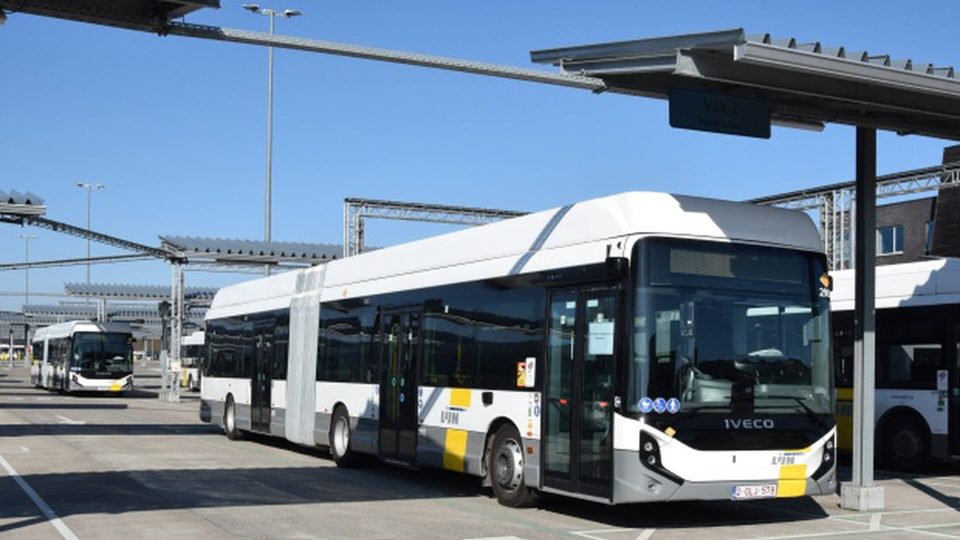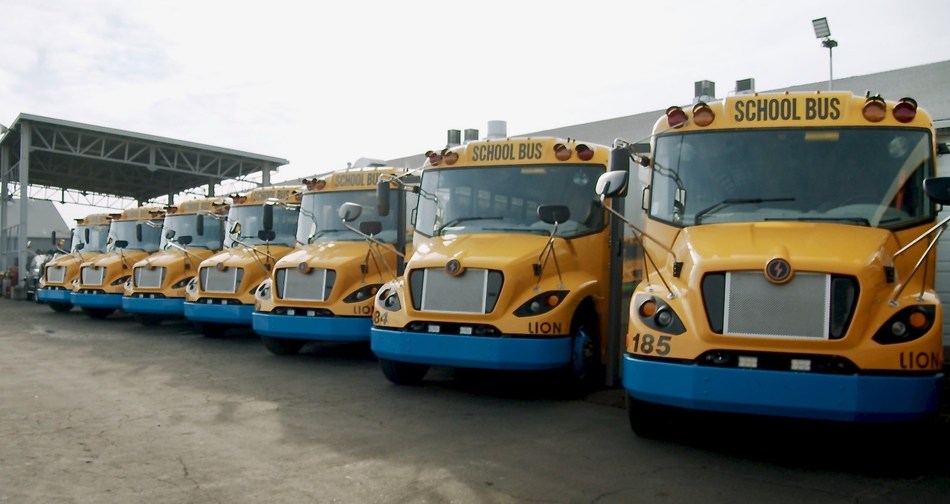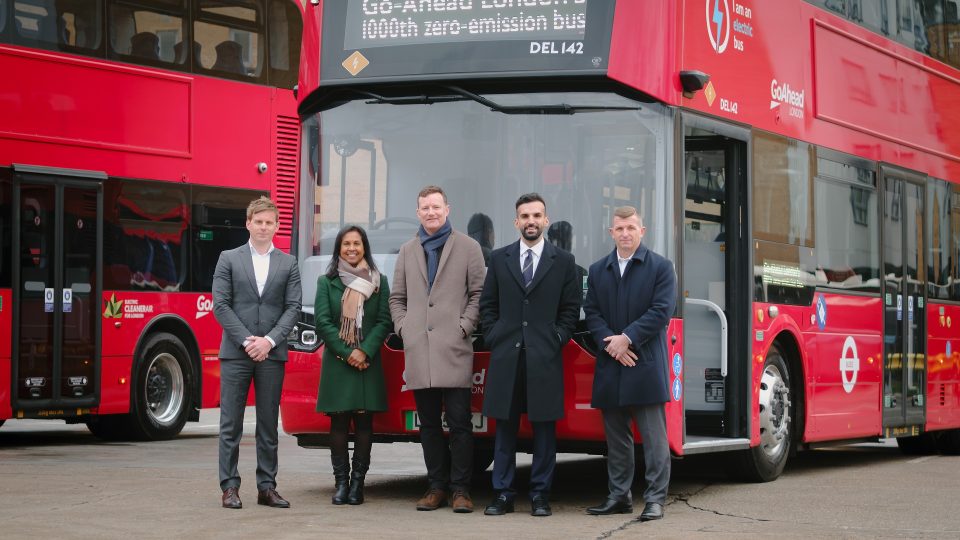COP30, Brazil and Mexico commit to allow only zero emission bus and truck sales by 2040
Brazil and Mexico commit to allowing only zero emission medium- and heavy-duty vehicle sales by 2040 at the latest, with an interim goal of at least 30% new sales by 2030. The Global Memorandum of Understanding on Zero-Emission Medium- and Heavy-Duty Vehicles was signed today at the COP30 underway in Belem, Brazil. Other 40 countries worldwide have […]
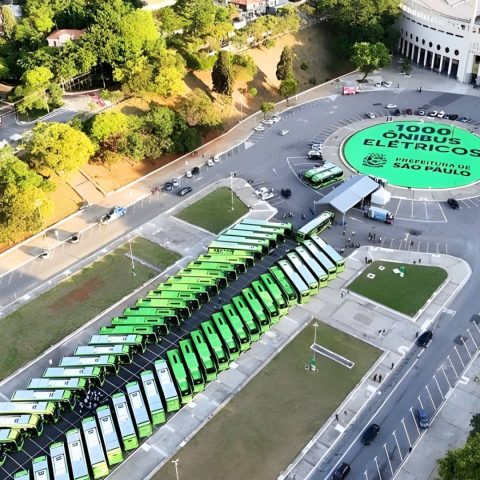
Brazil and Mexico commit to allowing only zero emission medium- and heavy-duty vehicle sales by 2040 at the latest, with an interim goal of at least 30% new sales by 2030. The Global Memorandum of Understanding on Zero-Emission Medium- and Heavy-Duty Vehicles was signed today at the COP30 underway in Belem, Brazil. Other 40 countries worldwide have already signed the MoU.
The new Global MoU signatories were welcomed today at the “Roadmap to Zero: Accelerate. Adopt. Deploy.” event at COP30. Private sector innovators, who formally endorse the Global MoU as well as the economic, jobs, clean air, and climate benefits of zero-emission transport, applaud the move.
The Global MoU is co-led by the Government of Colombia and CALSTART’s Drive to Zero. It was first introduced at COP26 in Glasgow.
In Brazil, São Paulo has just reached 1,000 electric buses in operation, following the ban on procuring new diesel buses already in 2022.
A global network for zero emission buses and trucks
According to CALSTART, the current 42 Global MoU countries represent nearly one-in-four trucks globally, while endorsing companies, organizations, and subnational governments represent more than $1.3 trillion in annual revenues. National governments represent 40 percent of the world’s GDP.
New Global MoU endorsers announced today include Despacio, Dhemax, EnergyLab, Evolectric, Grutter Consulting, Kabisa, Industry Efficiency Solutions SpA, INTENT Platform, New Energy Transport, Municipalidad de Rancagua, and Transportes Patricio Gutiérrez VEIRL.
Partners at today’s event also announced the e-Dutra Coalition, a public–private partnership dedicated to transforming freight transport along Brazil’s Rio de Janeiro–São Paulo corridor into the country’s first zero-emission highway. Bringing together leading companies, infrastructure providers, and government partners, the coalition aims to deploy 1,000 electric trucks and a network of high-capacity chargers by 2030.
“Today, we celebrate a significant milestone in our commitment to sustainability and decarbonization of the transportation sector, by signing the Global Memorandum of Understanding with CALSTART. This collaboration not only reaffirms our political will, but also opens the doors to new opportunities for investment, production and innovation in zero-emission vehicles. We are determined to move towards a more sustainable future, promoting economic development that respects and preserves our natural resources. This is just the beginning of a path towards sustainable development and a circular economy that benefits all Mexicans,” said Dr. José Luis Samaniego Leyva, Undersecretary of Sustainable Development and Circular Economy at SEMARNAT.
“Brazil and Mexico are demonstrating powerful zero-emission transportation leadership across the Americas through their strong policy commitment to zero-emission trucks, buses, and infrastructure. By sending a clear signal that they are open for business, these countries are poised to attract global fleet operators, infrastructure providers, and a host of other zero-emission transport innovators ready for that business,” said John Boesel, CEO of clean transportation accelerator CALSTART.
“The heavy-duty transport sector represents a significant share of global emissions, and mature technical solutions are already available to accelerate its decarbonisation. Brazil and Mexico demonstrate true leadership by aligning their ambitions with global zero-emission transport goals. Their commitment paves the way for coordinated public–private action to deliver tangible results — reducing emissions, strengthening competitiveness, and creating inclusive economic opportunities. At Scania, we stand ready to collaborate in this collective effort to make zero-emission freight transport a reality across Latin America,” said Christian Levin, President and CEO of Scania.
“Mexico and Brazil joining the Global MoU is a powerful example of how electrifying heavy-duty transport can drive sustainability in developing economies. Renewable electricity will fuel this transition toward a cleaner, more competitive, and brighter future for all,” said Francisco Laverón, Head of Energy Prospective for Iberdrola.
“Electrification of logistics and public transportation fleets is inevitable and the reasons are clear: Compared with diesel-powered vehicles, electric vehicles deliver approximately 80% lower operating costs, 80% to over 100% higher energy efficiency, greater comfort for passengers and drivers, and the elimination of particulate matter, polluting gases, and CO2. It’s as logical a choice as the shift from horse-drawn transport to motor vehicles about two centuries ago,” said Gustavo Tannure, CEO of EZVolt. “By working collaboratively and ambitiously toward a zero-emission commercial vehicle future, Brazil’s government is embracing these critical economic, sustainability, and health benefits. EZVolt stands ready to support Brazil’s growing charging needs.”
“The momentum Brazil and Mexico bring to the global shift to zero-emission transport is remarkable,” Stephanie Kodish, Senior Global Director of CALSTART’s Drive to Zero. “Latin America is a hotspot for clean technology and zero-emission commercial vehicles. And, the people—the local communities—will enjoy the economic, operational, clean air, and climate benefits clean trucks and buses deliver.”



